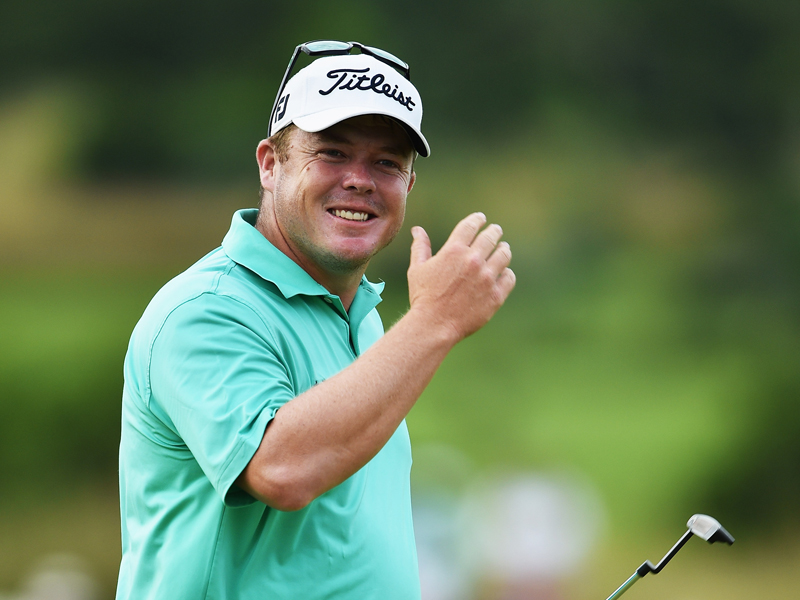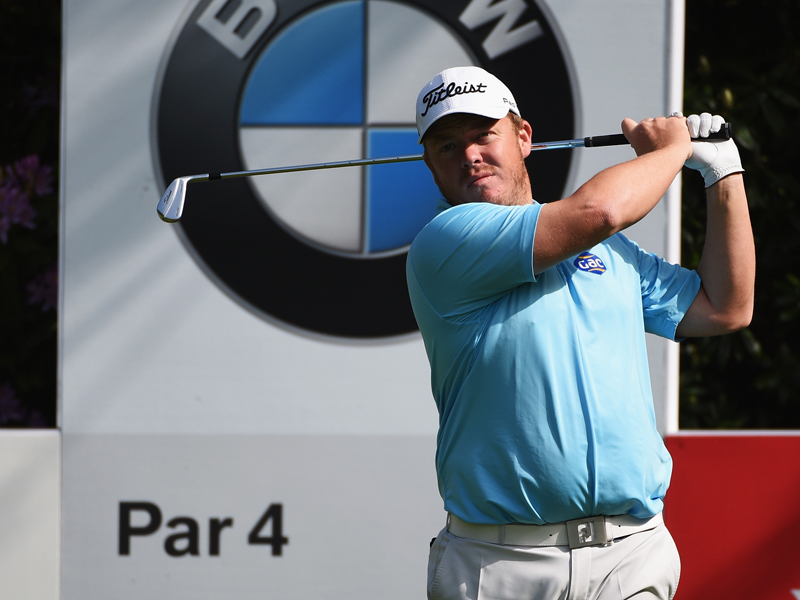The Big Interview: George Coetzee
We spoke to the three-time European Tour winner about pressure in golf

The South African reflects on his three European Tour wins, dealing with pressure on the course and golf in his homeland.
We spoke to the European Tour's George Coetzee about what it's like to play on tour, dealing with pressure and golf in his homeland...
Q. You won the first junior event you played in; could you tell us a little bit about how that happened?
GC: I'd been playing tennis for about seven years, even though I was only ten years old at the time. But my dad and my coach fell out and my dad said, "you're never playing tennis again." The following Monday he dropped me off at the golf club. The event was on the Friday, my 11th birthday, and it was nine-hole competition. I shot 49 and I think I won by four shots! I guess that fact I thought everyone would be better than me made me raise my game.
How much of a springboard was the Sunshine Tour, and how would you compare the overall standard of that tour against the European Tour?
Subscribe to the Golf Monthly newsletter to stay up to date with all the latest tour news, equipment news, reviews, head-to-heads and buyer’s guides from our team of experienced experts.
I've always said that on both tours the winning score is going to be about the same, but the amount of guys within five shots of the lead is going to be more on the European Tour. There's not a lack of quality, there's just a lack of quantity, and that's probably just because of the size of the country and the amount of people who come and play on the Sunshine Tour. There are a lot of Sunshine Tour players who should be playing on the European Tour.
Do a lot of those guys not come to Europe because they like the lifestyle in South Africa?
Travelling is difficult for South Africans as we're all a bunch of mumma's boys! Getting past Q-School is a difficult hurdle to get through. I was lucky enough to do it on the second attempt, but it's a hard week mentally when you know it's your one shot.

In 2010, you finished 126th on the Race to Dubai. The following year, you were 100 places higher. What was the difference?
Honestly, I felt out of my depth in the first year. I felt like I had to play better than what I was. Halfway through the year I saw I wasn't going to keep my card so I decided to start over, practising properly and do everything the right way - basically not try and be better than what I was. I lost my card and went back to Q-School, but I was confident because of the way I'd approached the end of the season and confident about the future of my career. I got through and halfway through 2011 I'd already secured my card. I haven't looked back since.
How important, and indeed difficult, is it to focus on your own game and not worry what everyone else is doing?
It's difficult. I always knew that would be the case, but as soon as you're in the situation it kind of overwhelms you, and you immediately think you need to be better. That first year I just felt like I wasn't playing any good golf at all. The more I tried to be better, the worse I would play. One day I just decided I wasn't going to try and be anything; that I was just going to play and see how it went.
If you could swap one area of your game for someone else's on tour, what would it be?
I'd say ball-striking. I've always been kind of an average ball-striker, but luckily I'm a good putter. I've always said if I wasn't a good putter I'd be flipping burgers! I can hit it far but I want to hit it a little straighter. There's actually a lot of good ball-strikers who struggle with putting, but I'd never trade. If you find a person who has both, he's probably a top-ten player in the world!
Learn how to become a better ball-striker with this power video
You played well from 2011 onwards, so everyone started saying you were one of the best players not to have won on the European Tour! Was that tricky to deal with?
That was a tough one, but I've always paced my career and set my goals out. Maybe it took me a little longer to get over the line, but some goals take longer than others. I think the only time I really realised people were talking about me in those terms was after I won my first event, the 2014 Joburg Open. I was leading with about four holes to go and I just thought to myself, "come on, this is it. It's not the best feeling in the world, but if you come through it, it will be." I realised if you want to win you have to deal with those feelings, those insecurities.
Then you won in front of your friends and family at the Tshwane Open on your home course at the start of the year...
That was a very special day, getting to win a European Tour event at my home club [Pretoria Golf Club]. They all wanted to play the Club Championship that week, but they had to come and watch me instead! That was one of the best moments of my career so far.
Your third title followed not long after at the Mauritius Open in May. How important was it to win outside South Africa?
Yeah, that was the next goal. I thought my best chance to win my first event would be in a co-sanctioned tournament. Then after that I started thinking about winning in Africa, but outside of South Africa, but outside of South Africa, I saw that as the next step. I'd earmarked the Trophee Hassan II in Morocco, but Mauritius is also part of Africa. I'm pretty happy to have won outside of my homeland and I'll now move my goals along accordingly.
So, what's next on the list then?
That's the problem - I don't share my goals as it just creates expectation. I'll just move them along and hopefully I'll achieve them, and when I do I'll let people know I did!
If you could swap one area of your game for someone else's on tour, what would it be?
I'd say ball-striking. I've always been kind of an average ball-striker, but luckily I'm a good putter. I've always said if I wasn't a good putter I'd be flipping burgers! I can hit it far but I want to hit it a little straighter. There's actually a lot of good ball-strikers who struggle with putting, but I'd never trade. If you find a person who has both, he's probably a top-ten player in the world!